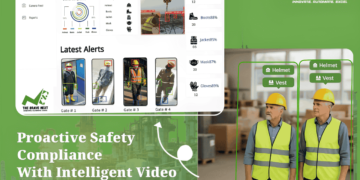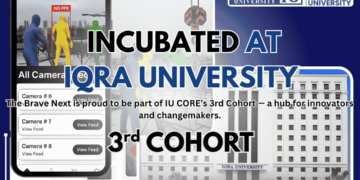The healthcare industry increasingly relies on technology to manage patient care, data, and operational tasks. With growing pressure on healthcare professionals to deliver better care in less time, improving clinical workflow efficiency has become a top priority. Clinical workflows, from patient intake to diagnosis and treatment, can be complex, fragmented, and prone to inefficiencies, but the right IT solutions can transform them.
This blog explores how healthcare IT consulting can optimise clinical workflows, improve productivity, and ultimately enhance patient care. We’ll look at key strategies, tools, and systems that can be implemented to streamline processes and ensure that healthcare providers can focus more on what truly matters: their patients.
What is Clinical Workflow Efficiency?
Understanding Clinical Workflows
Clinical workflows refer to the series of tasks and processes that healthcare providers perform in order to deliver care to patients. This can include everything from scheduling appointments, collecting medical history, conducting tests, diagnosing conditions, and prescribing treatments. In a busy healthcare setting, inefficient workflows can lead to delayed treatments, miscommunications, and administrative errors.
Improving clinical workflow efficiency means reducing bottlenecks, eliminating redundancies, and ensuring that each step of the process is completed as quickly and accurately as possible. The goal is to make the most of healthcare professionals’ time while improving the patient experience.
Why Workflow Efficiency Matters
In the UK, healthcare systems are under increasing pressure to deliver more with fewer resources. Inefficient workflows can lead to staff burnout, errors in patient care, longer waiting times, and higher operational costs. By optimising workflows, healthcare providers can improve patient satisfaction, reduce costs, and enhance the quality of care.
Effective workflows are not only crucial for the smooth operation of a healthcare facility but also directly impact patient outcomes. A streamlined process ensures that the right care is delivered at the right time, minimising delays and improving treatment effectiveness.

How IT Consulting Improves Clinical Workflow Efficiency
1. Implementing Electronic Health Records (EHR)
One of the most impactful changes that healthcare IT consulting can bring to clinical workflows is the implementation of Electronic Health Records (EHR). Traditionally, healthcare providers relied on paper records, which were time-consuming, prone to errors, and often difficult to share between different departments.
With EHR, all patient information is stored digitally and can be accessed in real-time by authorised healthcare providers. This improves communication, eliminates paperwork, and makes it easier to track patient history.
2. Automating Administrative Tasks
Many clinical workflows are bogged down by administrative tasks, such as scheduling appointments, billing, and maintaining patient records. IT consultants can introduce automation tools to handle these time-consuming tasks, freeing up staff to focus on patient care. For example, automated appointment scheduling systems can help reduce no-show rates, improve patient access to care, and ensure better use of healthcare resources.
Billing can also be streamlined with automated invoicing systems that integrate with EHR, reducing the chances of errors and speeding up the payment process. By automating these routine tasks, healthcare providers can reduce human error, save time, and ultimately improve their overall efficiency.
3. Enhancing Communication with Integrated Systems
In healthcare, clear communication is critical to patient care. However, miscommunication or delays in information transfer can lead to mistakes and inefficiencies. Healthcare IT consulting helps implement integrated communication systems that allow healthcare providers to share information quickly and securely.
For instance, patient data can be seamlessly shared between departments, ensuring that physicians, nurses, and other healthcare staff have access to up-to-date information. This can reduce the need for redundant tests, decrease the chances of misdiagnosis, and streamline patient care.
Additionally, mobile apps and secure messaging platforms allow healthcare teams to communicate instantly, whether they’re in the same building or across multiple sites. These systems not only improve workflow efficiency but also enhance patient safety by reducing the likelihood of miscommunication.
4. Real-Time Decision Support Systems
Decision support tools, integrated with EHR systems, can provide healthcare professionals with real-time insights that help them make faster, more informed decisions. For example, a clinical decision support system (CDSS) can alert a doctor to potential drug interactions or flag abnormal lab results that require immediate attention.
IT consultants specialising in healthcare IT consulting can implement these tools, customising them to meet the specific needs of the healthcare facility. By providing real-time alerts and recommendations, these systems reduce the chances of human error and enhance decision-making, ensuring that patients receive the most appropriate care.

5. Optimising Resource Management
Efficient resource management is another area where IT consulting can make a significant difference. In healthcare, resources such as medical equipment, staff time, and patient beds must be carefully allocated to avoid bottlenecks. IT solutions can help track resource usage in real-time, allowing managers to make better decisions regarding staffing and equipment.
For example, cloud-based systems can monitor patient flow and equipment availability, helping hospitals and clinics allocate resources where they’re needed most. This ensures that patients receive timely care while reducing unnecessary delays or disruptions.
6. Data Analytics for Continuous Improvement
Data analytics can help healthcare providers track performance, identify inefficiencies, and make data-driven decisions. IT consultants can set up analytics platforms that track key performance indicators (KPIs) related to clinical workflows, such as patient wait times, appointment scheduling efficiency, and resource utilisation.
By analysing this data, healthcare providers can pinpoint areas for improvement, refine their processes, and implement changes that increase efficiency. This continuous improvement cycle ensures that clinical workflows remain optimised over time, enhancing both productivity and patient satisfaction.
The Role of IT Support in healthcare
IT support St Albans and other regions can help practices transition to EHR systems, integrating them with existing workflows, training staff, and ensuring seamless adoption.. Their proximity allows for faster response times and personalised support, making it easier to address issues as they arise.
Local IT support also provides healthcare providers with the peace of mind that their IT systems are compliant with relevant regulations, including data protection laws. This is crucial in the healthcare sector, where patient confidentiality and data security are paramount.
Conclusion
Improving clinical workflow efficiency is a crucial step in enhancing patient care, reducing costs, and increasing the overall productivity of healthcare practices. Healthcare IT consulting offers a wide range of solutions to optimise workflows, from EHR implementation to resource management and decision support systems. With the right IT solutions, healthcare providers can streamline their operations, improve communication, and ensure better outcomes for their patients.
At Renaissance Computer Services Limited, we specialise in offering tailored IT consulting and support services to help healthcare providers improve their workflow efficiency and meet the demands of the modern healthcare environment. By leveraging the latest technologies and IT solutions, we help ensure that healthcare practices in St Albans and beyond are equipped to deliver the highest standard of care.


















